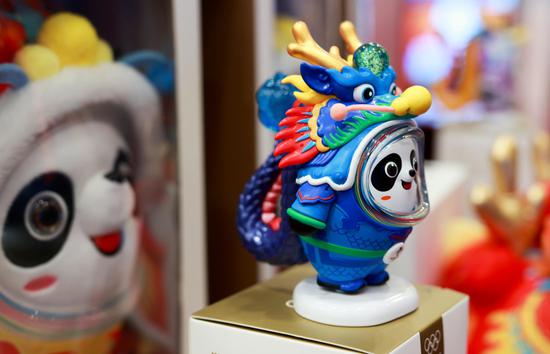Growth potential
Arla Foods, the Danish dairy industry leader, has taken part in the Shanghai expo every year since the event was launched in 2018.
Frede Juulsen, head of international business for Arla Foods' Early Life Nutrition Business, said China's per capita consumption of liquid milk is about one-third the global average, a sign of significant growth potential. Furthermore, the penetration rate of high-end dairy products in China is gradually increasing.
The report also said the growth of China's imported food industry is due to four key factors: the vast scale of the global single market; reduced tariffs; expanded sources for imported food; and an increased variety of imported food products.
Bai Lu, deputy director of the General Administration of Customs' import and export food safety bureau, said Chinese customs authorities will continuously enhance the import food safety supervision system. They will also innovate regulatory technologies and accelerate the implementation of smart Customs procedures, with a particular focus on developing the Smart Food Safety system to improve clearance efficiency.
Imports of food and agricultural produce from the BRICS countries (Brazil, Russia, India, China and South Africa) have experienced robust growth.
A report on such imports by China from BRICS countries last year, which was released at the 2023 China Import Food Summit, said they reached $72.7 billion, a growth of 10.6 times compared with 2006, and representing 31 percent of China's total food imports.
The report added that such imports by China from BRICS countries last year rose by 15 percent compared with 2021. The main import categories include soybeans, meats and meat products, aquatic products, vegetable oils and grains.
In particular, Brazilian beef, king crab from Russia, Indian spices, South African citrus fruits, red shrimp from Argentina, oranges from Egypt, and Ethiopian coffee have gained popularity among Chinese consumers.
During the Shanghai expo, New Zealand agricultural produce was in demand among consumers on Tmall, while in the top live broadcasting rooms on Taobao, premium items such as imported prime cut beef ribs, Manuka honey, New Zealand's latest milk products, and Pic's peanut butter featured prominently.
Grahame Morton, New Zealand's ambassador to China, highlighted the close economic and trade relations between the two nations, emphasizing the rapid growth of e-commerce cooperation.
He said Tmall plays a crucial role in providing a robust infrastructure for overseas brands to enter the Chinese market, as the platform has successfully helped hundreds of New Zealand brands connect with millions of Chinese consumers.
More than 10,000 of the imports that are thriving on Tmall include coveted items such as Chilean cherries, milk from New Zealand, Norwegian salmon, and red wine from Argentina, among others. These products have rapidly penetrated the Chinese market through the platform to become "must-haves".
Data released at a news conference held by Tmall during the expo show that sales of imported food on the platform surpassed 50 billion yuan ($70.2 billion) in the first three quarters of this year, and this food comes from more than 130 countries and regions. Furthermore, this category has experienced year-on-year growth for three years.
Tmall's 2024 global direct procurement plan shows that the platform aims for sales of food imports to reach 10 billion yuan within one year.
Li Yan, deputy general manager of the fresh food industry at Tmall, said the platform's data reflects increasing demand in China for food imported from countries taking part in the Belt and Road Initiative, or BRI.
"Among the imported food brands taking part in the Double 11 promotion, more than half were from Belt and Road nations," Li said, adding that Tmall has established dedicated live broadcasting sessions to specifically showcase products from BRI countries.
Chile is one of the nations to sign a memorandum of understanding for the BRI with China. An agreement Tmall reached in 2015 to import Chilean cherries has significantly shaped the market, and during this time, cherries have become extremely popular on Chinese dining tables during the Spring Festival.
At the Shanghai expo, Tmall launched an ambitious 2023-24 season super sales plan for Chilean cherries, sales of which are forecast to reach 2 billion yuan.


















































 京公网安备 11010202009201号
京公网安备 11010202009201号